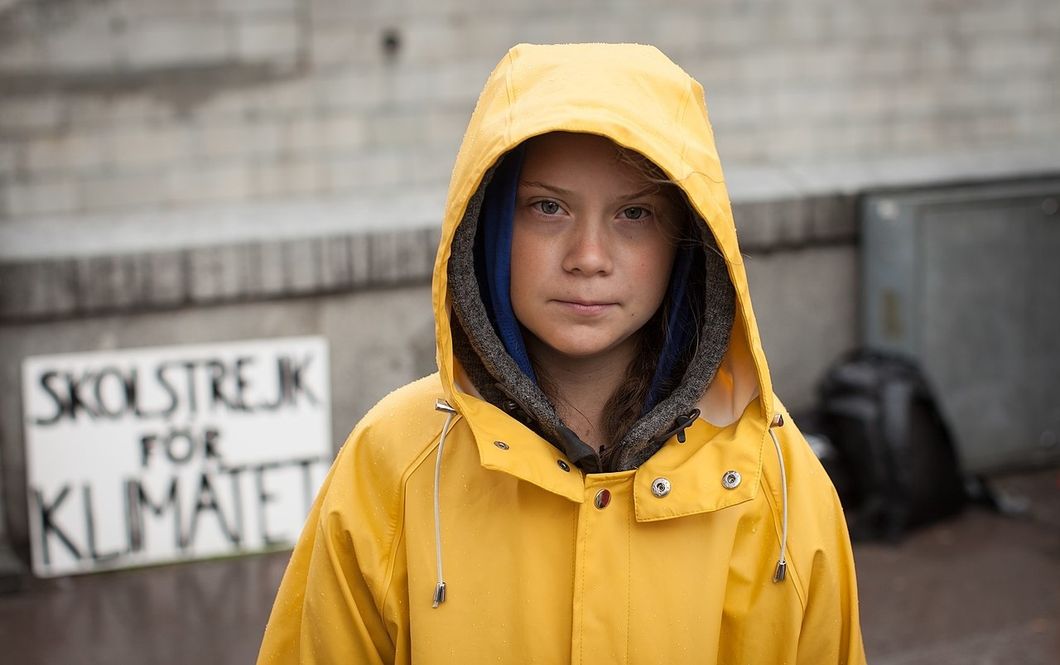There is a major flaw facing our nation's education curriculum today, one that usually gets swept under the carpet. Of course it's important to teach students about literature and of course, it's important for the newest members of society to understand basic arithmetic.
But isn't it also important for the youth of America to know how to save the world?
Based on my experience as a young adult in America, studies on the environment were scarce in most of my high school classes. Even in my AP Biology course, the teacher showed little interest or urgency in connecting our studies to the problems facing our current society. Walking into one of my first classes at Villanova University, I felt behind in terms of my knowledge of my world and what is actually in the air I breathe daily. My lack of comprehension on this subject makes me feel naive from a lack of basic understanding about the composition of my environment, and I feel that it is time teachers and professors everywhere begin adding environmental studies into the curriculum for every student everywhere.
Recently, I read a chapter through a class assignment from the book "Prioritizing Sustainability Education: A Comprehensive Approach" written by the enthusiastic young leaders of the organization Zero Hour. This small section I read from their story shocked me and I find it is something that has to be shared. The current curriculum for education as defined by the United States government is flawed in the way that we are waiting until students are at the college level to focus on environmental studies if they so choose. In a perfect world, this information would have been researched and comprehended before college so that our future leaders could begin analyzing and testing solutions to the problems we face on Earth.
Unfortunately, this isn't the case.
Teaching about climate change and the makeup of our Earth takes a back seat to studies such as trigonometry, history, and writing. What's the point in learning Biology and the makeup of a cell when soon there won't be many living organisms left on Earth to study? Without an effective ecosystem with the ability to house living things, what's the point of learning at all? While I see and understand the importance of all these subjects, I agree with the youth from Zero Hour in their belief that environmental studies need to be the baseline for every subject in school. Every passion, occupation, and hobby has an impact on our Earth and our future, and we need to recognize this with a sense of urgency.
To specify, America's education system needs to spend more time focusing on the daily changes humans can make in an effort to reverse the effects of climate change. Our youth can no longer be shielded from the realities of our world. On the contrary, we need to be shown examples of what is happening as well as ways to change it. Recycling simply isn't enough. It's a constant effort that can't end after one day. Our future has to consist of daily reminders on how to protect our Earth, and these reminders have to start at a young age. It's easier to change bad habits before they start than after an individual has been doing the same routine for 18 years.
Changing our ways has to start now and it has to start with everyone. I encourage students to begin learning about the current struggles of our environment and passing this knowledge on to as many people as possible. I encourage educators to demand more time spent on environmental studies in the curriculum, whether it be for second grade or for juniors in high school. And I encourage parents to enforce change in households in order to set examples for the youth of our country who will, inevitably, have a huge effect on the duration of humans' time on Earth. As 16-year-old Kendall Kieras says, "Saving the world shouldn't be an extracurricular activity."
It's time for change. It's time for knowledge. To donate to Zero Hour to help them help us, go here.





















